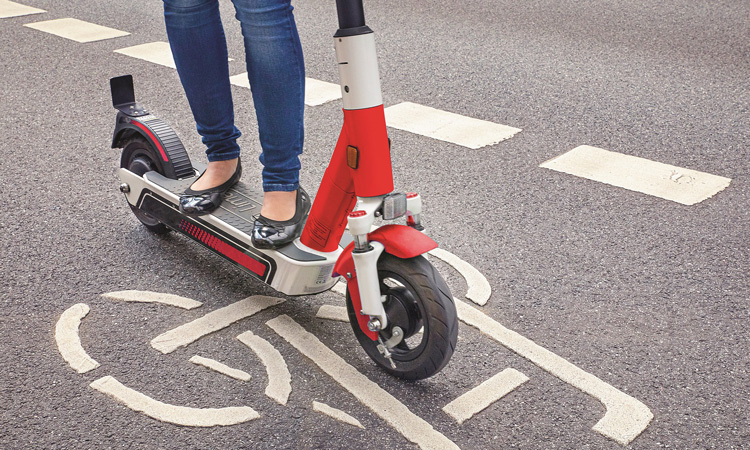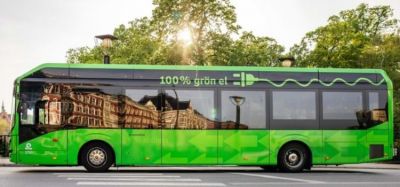New standard for micromobility outlines approach to e-scooter safety
- Like
- Digg
- Del
- Tumblr
- VKontakte
- Buffer
- Love This
- Odnoklassniki
- Meneame
- Blogger
- Amazon
- Yahoo Mail
- Gmail
- AOL
- Newsvine
- HackerNews
- Evernote
- MySpace
- Mail.ru
- Viadeo
- Line
- Comments
- Yummly
- SMS
- Viber
- Telegram
- Subscribe
- Skype
- Facebook Messenger
- Kakao
- LiveJournal
- Yammer
- Edgar
- Fintel
- Mix
- Instapaper
- Copy Link
Posted: 29 November 2019 | Intelligent Transport
The DEKRA Micro-Mobility Standard was developed in consultation with experts in vehicle safety, product testing and connectivity.


DEKRA, a European vehicle inspection company, has presented its Micro-Mobility Standard – an integrated approach to safety and sustainability for e-scooters and other micro-vehicles. The new standard comprises a total of more than 120 individual testing items across eight areas.
The current safety standards and the rules for using new mobility services are said to differ not only from country to country, but often from city to city, which is why the regulations are considered to play a decisive role in ensuring the safety of the services.
Dr Kerim Galal, Managing Director of DEKRA Digital GmbH, said: “The issue of micro-mobility is highly relevant in cities around the world and will become even more important in the future.”
The DEKRA Micro-Mobility Standard focuses on the following eight areas:
- Technical design of the vehicle: Frames and wheels, brakes, lighting, driving dynamics, electrical safety, battery safety, harmful substances, electromagnetic compatibility, functional safety, wireless connections, etc.
- Production, transport and assembly of the vehicle: Quality management, health and occupational safety, environmental protection, etc.
- Authorities, insurance and infrastructure: Insurance, designated/permitted parking spaces, geo-fencing (e.g. not allowing the vehicles in pedestrian zones), age limit for users, etc.
- IT security and data protection: Data security, network security, data protection, etc.
- Training and user behaviour: User training on an app/online, recommendations for protective equipment (helmet), information about applicable road traffic regulations, responsible marketing, etc.
- Use and application of the vehicles: Provision of the vehicles, integration in local public transport services, reporting and investigating accidents, environmental standards, etc.
- Maintenance and storage: Maintenance intervals for vehicles and charging infrastructure, damage reporting and repair, feedback for vehicle development, employee training, occupational safety, fire protection, etc.
- Recycling: Life cycle, recycling of materials, reuse of parts, etc.
The DEKRA Micro-Mobility Standard was unveiled at the sixth Safer City Streets Network Meeting of the International Transport Forum and POLIS in Lisbon in October 2019. “The response from the city representatives to our approach was very positive,” said Dr Galal. “The interest confirms the importance of this issue.”
Initial tests in accordance with the new DEKRA Micro Mobility Standard are scheduled to take place in the beginning of 2020.
Related topics
Alternative Power, Mobility Services, Sustainable Urban Transport, Transport Governance & Policy, Vehicle & Passenger Safety
Related modes
e-scooters
Related organisations
DEKRA
Related people
Dr Kerim Galal








